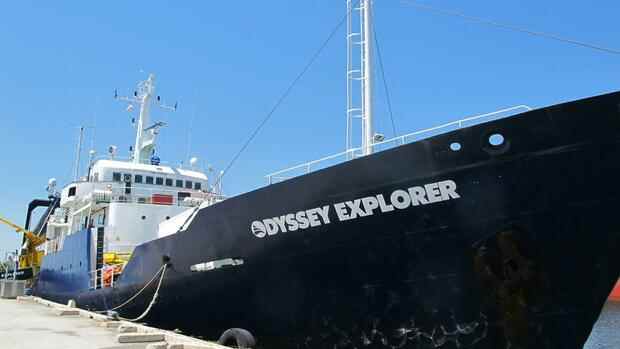The company specializes in treasure hunts under the sea surface.
(Photo: AP)
Investment treaties and arbitration impair the willingness and ability of states to implement climate protection measures. That’s why they’re criticized. Rightly so.
Because effective environmental protection measures often affect the profitability of certain activities. When investors involved in such activities can sue for large compensations, governments have the incentive to make their actions cosmetic rather than effective.
This is anything but a theoretical problem. The current case of Odyssey Marine vs. Mexico is about a company’s project to mine phosphate deposits under the sea surface off a coast.
There are many such occurrences. Commercial production has never taken place, however, as the economics present an enormous challenge, almost as much as the environmental impact of dredging vast areas of seabed.
Top jobs of the day
Find the best jobs now and
be notified by email.
No one has figured out how to exploit these resources profitably. But the system of arbitration does reveal how to sue a government for damages for not being able to do it.
Probably high return for the plaintiff
The case of Odyssey Marine v. Mexico demonstrates that international arbitration lawyers can construct a claim on virtually any matter where government action is involved.
Juan Carlos Boué is a political scientist and a lawyer with the international law firm Curtis, Mallet-Prevost, Colt & Mosle in London.
(Photo: Curtis)
In this case it is the denial of an environmental permit – and the case shows that it is easy to find economists who calculate, on the basis of pure speculation, the billions in profits that the project was said to have brought in.
It is rather unusual for an international arbitration that the most important pleadings in this case are publicly accessible. They show that the compensation sought was $2.3 billion as of September 4, 2020. Of that, $981 million is interest because the debt is compounded at a rate of 14 percent.
However, many figures in the pleadings were blacked out, including the amount that the plaintiff allegedly invested. It is therefore not possible to calculate the return that the plaintiff could obtain from an award of this magnitude – or even half of it. But it’s safe to say it would be spectacularly high.
The recent history of investor arbitration does offer examples of such absurd judgments: In the Al-Kharafi case, a plaintiff who had invested $5 million in a hotel project disrupted by the Libyan revolution and was demanding $2 billion in damages was awarded $900 million Dollars awarded in lost profits and interest.
More: Eight places where the climate crisis is already changing the world
